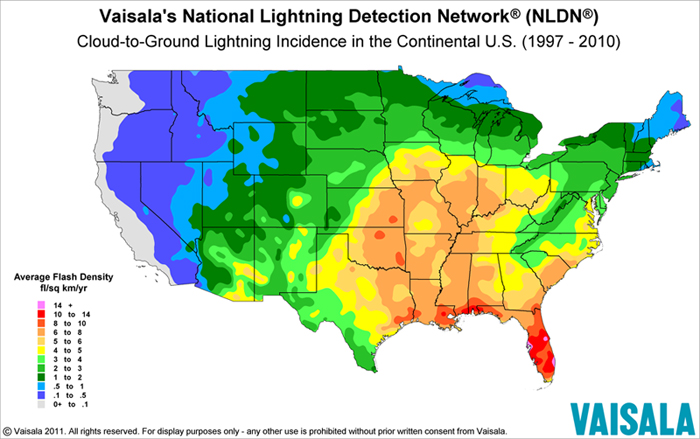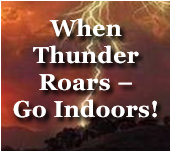|

Like any natural hazard, you can reduce your risk by understanding how to prepare and what to do when lightning threatens. The following links are a great place to start.
Click here for tips on how to protect yourself and your family when you hear thunder approaching.
Click here for a video on Lightning: The Impacts on People.
Click here for Lightning Science: Five Ways to Become A Lightning Victim.
Click here for details on U.S. Lightning Fatalities by Year.
Click here for Children’s Lightning Educational Materials such as posters and games.
^Top
 The following stories underscore the dangers of lightning in open air recreational facilities and many had tragic results. The following stories underscore the dangers of lightning in open air recreational facilities and many had tragic results.
In July 2012, a woman was shocked by lightning at SeaWorld Orlando while visiting the Shark Encounter.
In June 2012, several golf course workers were struck by lightning in Hartford, CT while taking cover from a storm on the course.
Earlier that year, one man was killed and nine injured when struck by lightning at the Poconos Racetrack in Pennsylvania while attempting to take cover.
In 2011, a lifeguard at Adventure Island in Tampa, FL was struck and killed by lightning while helping to evacuate people from a water slide.
That same year, eight people were struck by lightning at Discovery Cove in Orlando, FL. Fortunately, all eight were treated and suffered no permanent injuries.
A soccer coach was struck and killed on the soccer field in Houston, TX and a young girl was also struck in the same incident but not seriously injured.
Another innocent victim was at Castle Rock Park in Billings, MT when he was struck and killed at a 4th of July picnic.
Six people were killed by lightning in 2011 when camping outdoors, and yet another while golfing.
^Top
Next time you visit your favorite outdoor recreational facility, ask about the lightning protection plans they have in place to protect you and your family. These systems should include weather detection and warning systems, sound evacuation plans and approved lightning protection technology. If a facility can’t answer your questions, let us know by emailing us at [email protected]. We can follow up with those facilities and provide helpful information to enable them to develop lightning safety plans.
^Top
|


 The following stories underscore the dangers of lightning in open air recreational facilities and many had tragic results.
The following stories underscore the dangers of lightning in open air recreational facilities and many had tragic results. 